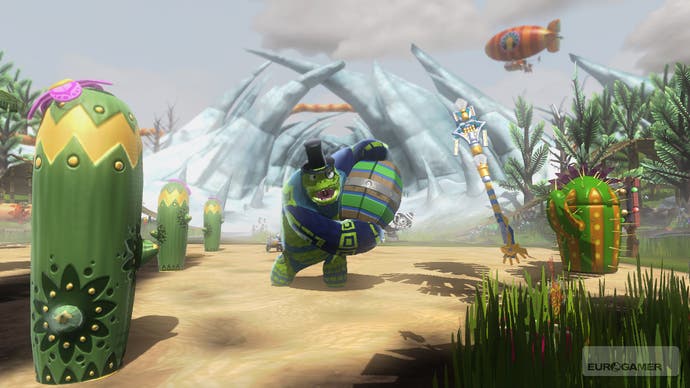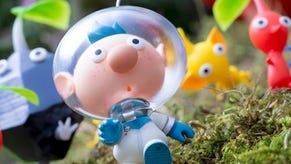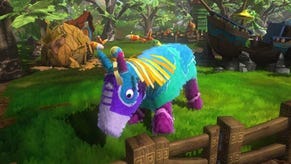Viva Piñata: Trouble in Paradise
Join the green party.
Not everything comes off smoothly. Four-player co-operative play is included for gardeners who want to invite their friends to join in over Xbox Live, but while this functions well and you can set access levels for guests, the absence of an in-game avatar lessens the feeling of connection with other players, and gardens - while often beautiful and filled with exotic animals - are relatively small and so show-and-tell sessions will be over in seconds. Perhaps a co-operative system where players created discrete gardens and allowed them to cross-pollinate organically, like Spore or Animal Crossing, would have been preferable.
The inclusion of local co-operative play, giving a second player limited options to interact with and entertain creatures - to lend a helping hand, effectively - is a smarter choice, and potentially gives parents a better way to play the game with children, who may find the interface and options slightly overwhelming. The Xbox Live Vision Camera can also scan specially made trading cards, one of which is included with the game, and immediately provides access to a piñata with a set name and various accessories hidden in a dotty code that runs up the side. The card included with the game is cheaply produced, but you can take your own pictures and upload them to a special website to create piñata cards, giving that feature a bit more depth for devoted players. The option to ship animals and other items to your friends is also retained.

Overall, returning fans of the first game who mined its surprisingly extensive depths for hidden variant species, growth bonuses, tinkered items, top-level tool upgrades and Achievements won't be disappointed, despite the initial feeling that this is simply the same game with more options. That may be true, but having won us over the first time by filling the game out with hundreds of beautiful animations, romance videos and hidden bonuses, Rare's decision to repopulate, extend and refine the game's inventory of the same treats replicates the effect while offering a better version of the same core experience to people whose heads weren't turned by the first game's legions of slightly disbelieving advocates.
Viva Piñata is still compromised, paralysing newcomers in places with its hyperactive progression and competing activities. If anything, the balance of the first game, which sometimes slowed to a crawl as you waited for a number of lengthy processes to complete, has shifted too far in the other direction. Elsewhere it still struggles to blossom under the weight of an interface that feels one or two layers too deep, and some of Rare's revisions are slighter than they first appear, including the trapping sub-game in desert and arctic regions, which is little more than an additional layer of mechanical obfuscation. Gardens are also flat land, with no option to change levels apart from digging ponds, and we had hoped this would change for the sequel.
But it's easy to forgive these things when the whole is deep, compelling, personal and capable of so much incidental humour and charm: your first set of twins, the first time your sparrow catches fire, the first time you realise you've mated parent and child. Rare has said it will take a break from Piñata Island for now after six years of almost constant development. We only hope it's not a permanent vacation, because there are very few series that do such a good job of infusing compelling gameplay with infectious personality. And we're really f***ing sick of underground lizard aliens.











